International Day of Persons with Disabilities, 3 December

#EveryoneIncluded #IDPD
Leadership and participation of persons with disabilities toward an inclusive, accessible, and sustainable post-COVID-19 world
The United Nations Country Team in Thailand fully commits to the realization of disability inclusion by acting on the principle of "leaving no one behind." Disability inclusion is an essential condition to upholding human rights, sustainable development, and peace and security. It is also central to the promise of the 2030 Agenda for Sustainable Development to leave no one behind. The commitment to realizing the rights of persons with disabilities is not only a matter of justice; it is an investment in a common future. Every year on 3 December, the UN in Thailand stands together for International Day for Persons with Disabilities, taking action to realize the call: ‘Nothing about us, without us’.
MESSAGE FROM THE SECRETARY-GENERAL
I urge all countries to fully implement the Convention on the Rights of Persons with Disabilities, increase accessibility, and dismantle legal, social, economic and other barriers with the active involvement of persons with disabilities and their representative organizations. — António Guterres
Watch more
Despite being numerous, persons with disabilities are still overlooked and remain disproportionately left behind in society. This includes: a lack of equal opportunities in education and employment; barriers to access to transport, health services and housing, the persistent and widening disability pay gap and welfare reforms.
UNDP Thailand |
|
UNICEF Thailand |
|
UN Volunteers |
|
Imagine if you were on a wheelchair or blind. UNDP explores Bangkok to learn about the challenges facing persons with disabilities. Watch more
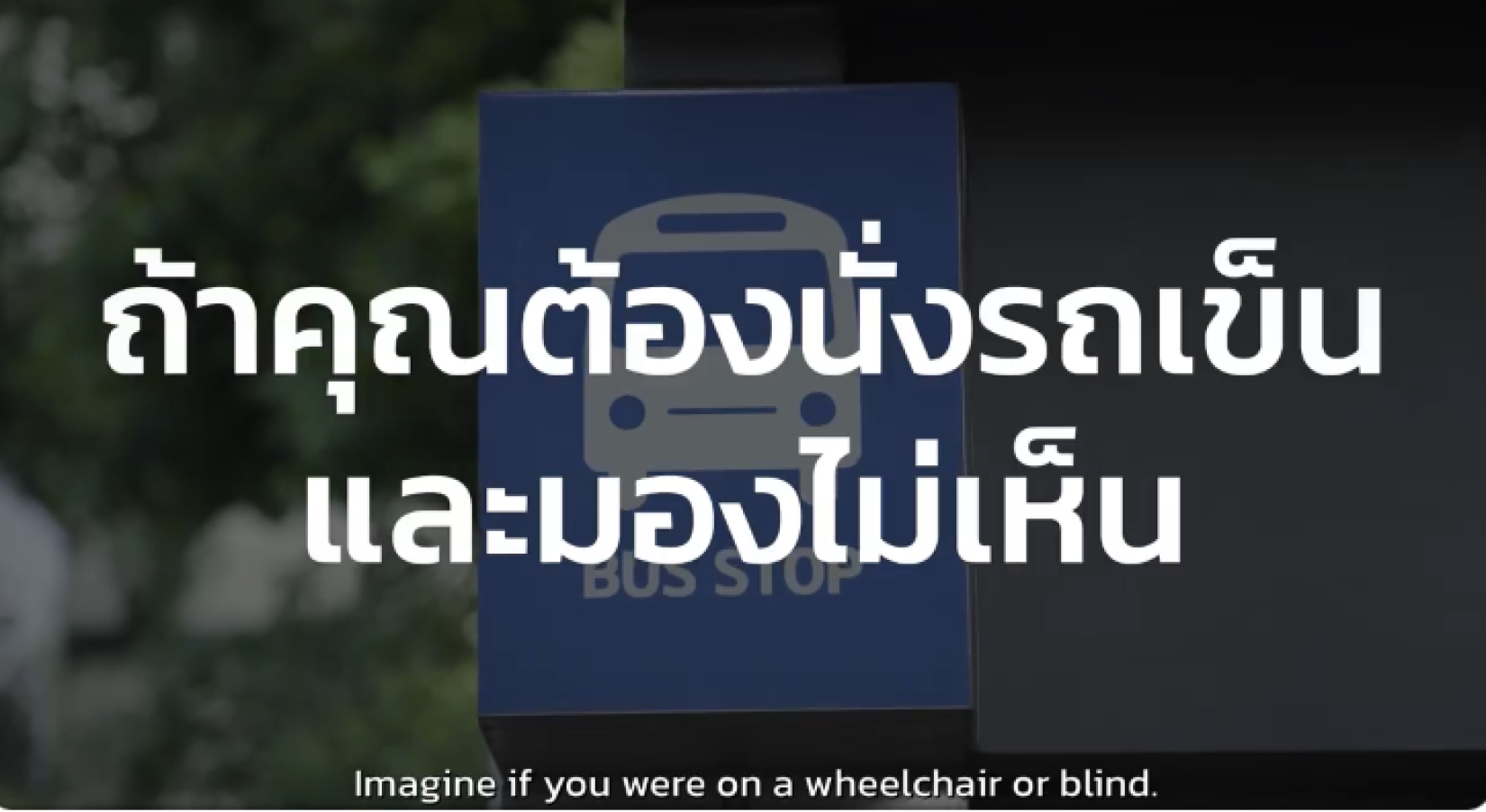
|
Name, 19, UNICEF's Young People Advisory Board member, shares her definition of a disability-inclusive society and why the active involvement of persons with disabilities and their representative organizations is necessary. Watch more

|
In his 360-video, UN Volunteer Namchok Petsaen speaks about the challenges faced by persons with disabilities in Thailand. Watch more
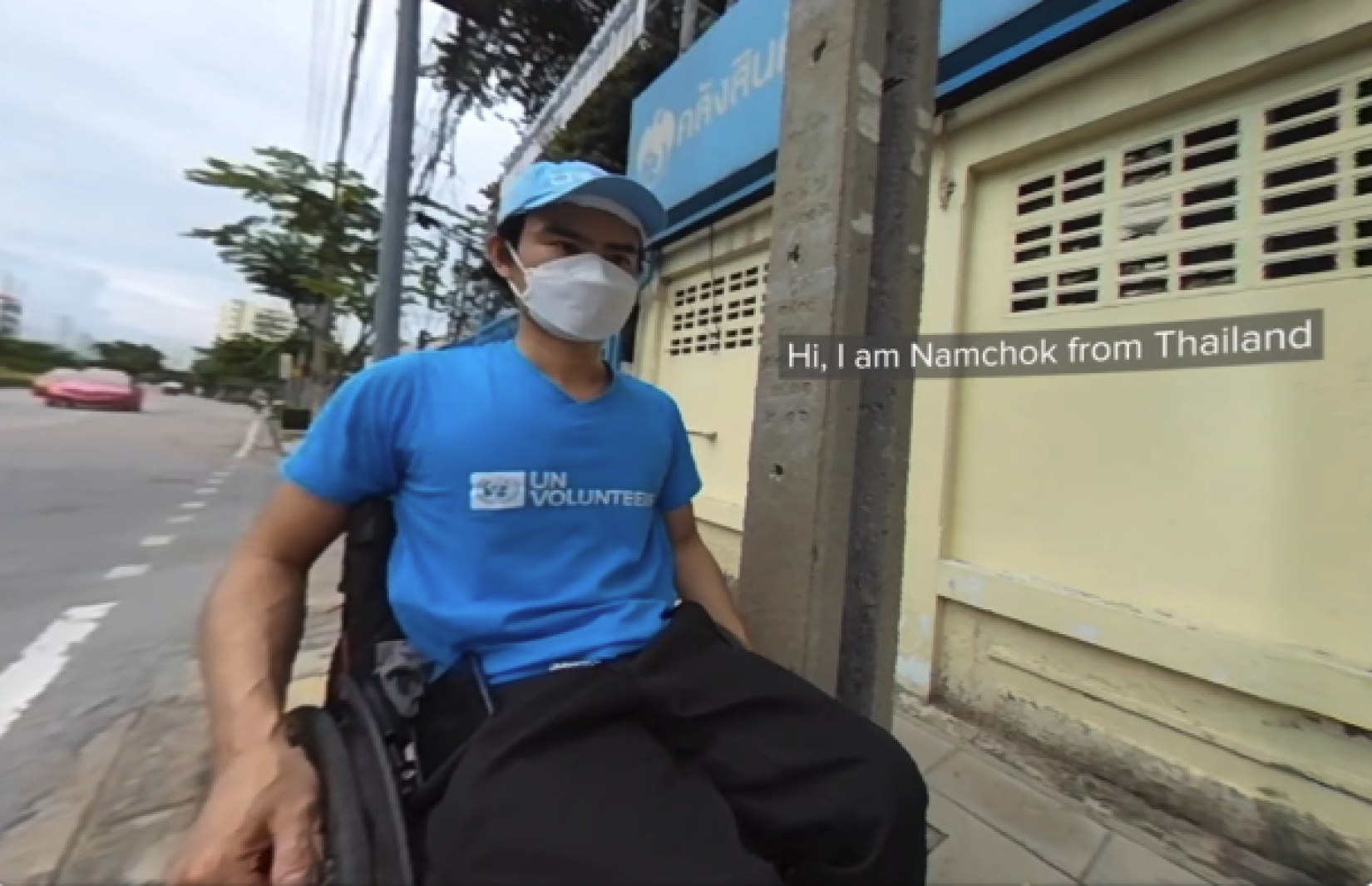
|
ILO |
UN Women |
UNDRR |
||
|
Promoting youth employability is key component of ILO's work to support youth in the labour market, in particular disadvantaged young women and persons with disabilities. Learn more
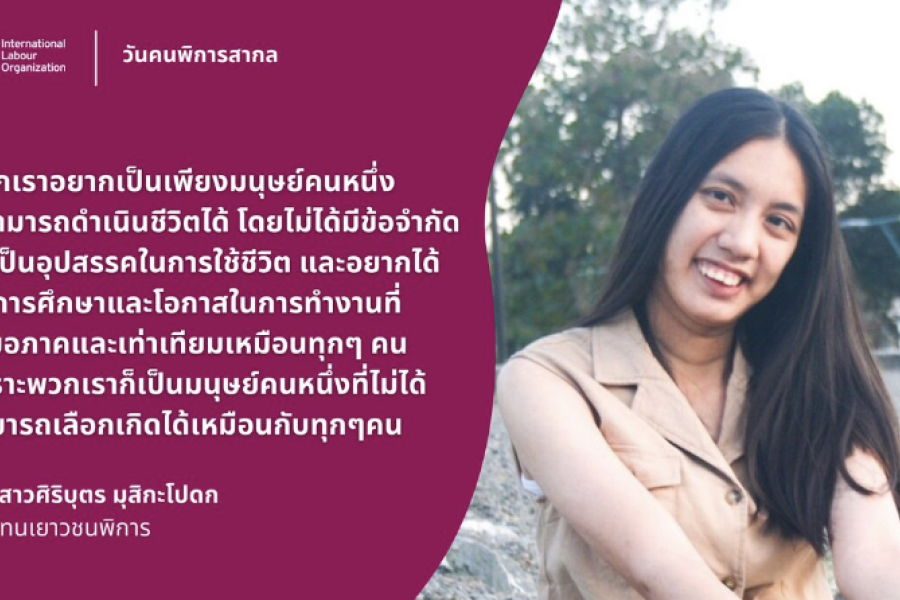
|
As part of the 16 Days of Activism campaign, the UN Country Team led by UN Women spoke with gender champions including those with disabilities to hear about their commitment towards ending violence against women and girls.
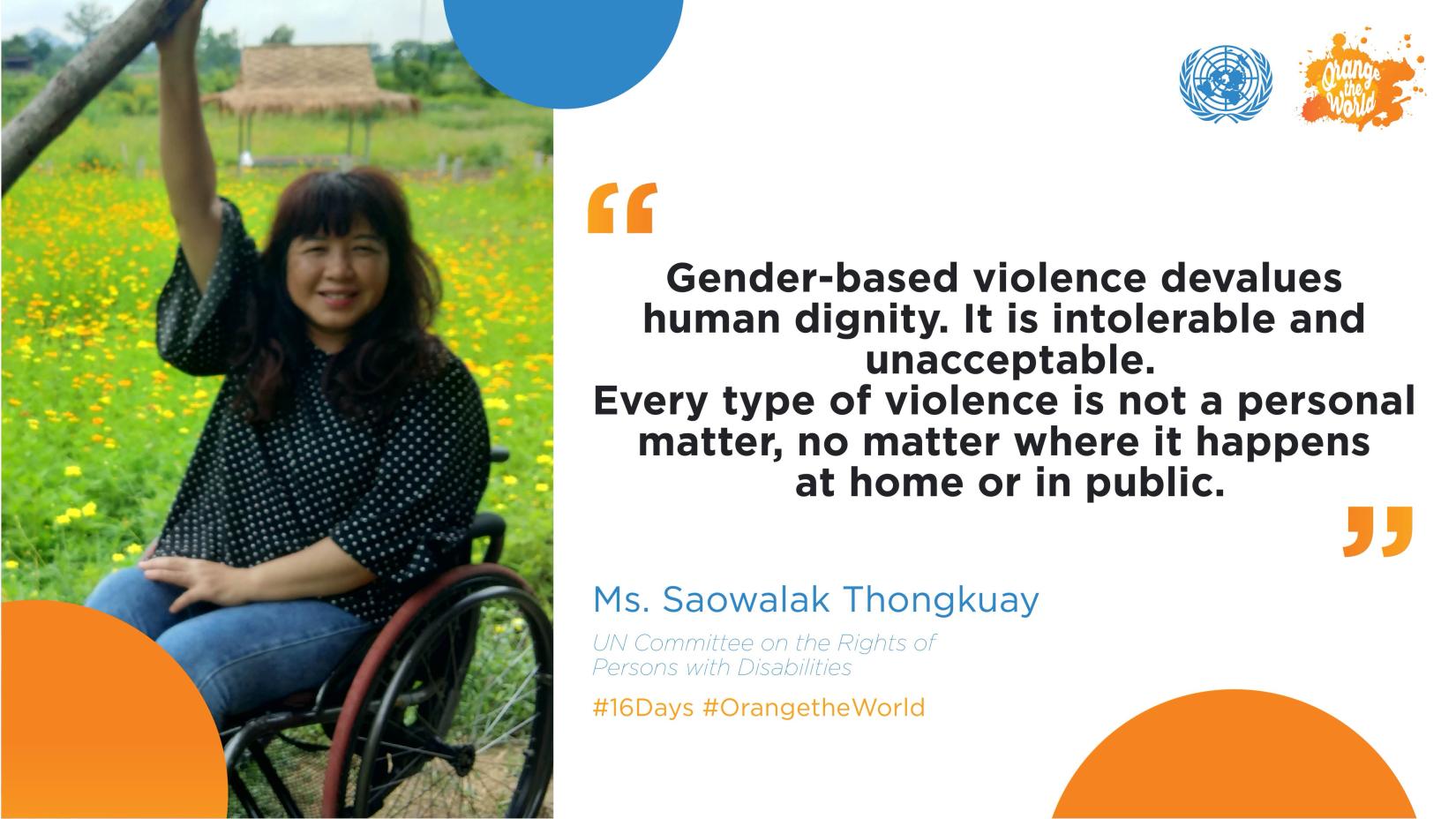
|
Much more can be done to ensure the rights of persons with disabilities, especially in disasters. Article 11 of the CRPD is key for inclusive disaster risk reduction and implementation of the SendaiFramework. Watch more
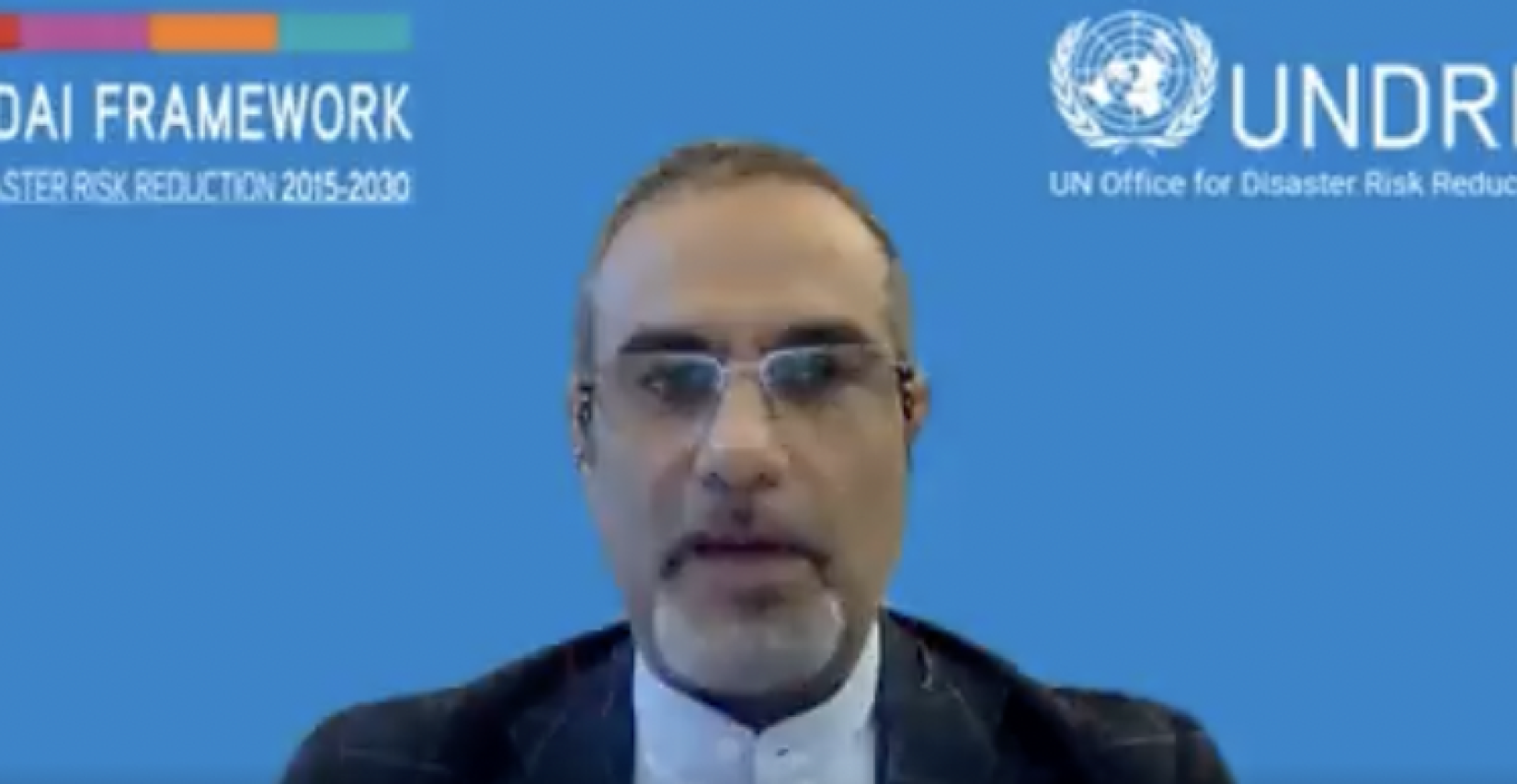
|
Vulnerable youth in Thailand falling behind in all key social and economic dimensions due to COVID-19
The COVID-19 pandemic has laid bare the persistent barriers and inequalities faced by the world’s 1 billion persons with disabilities, who have been among the hardest hit by the pandemic. A new UNICEF report, Seen, Counted, Included: Using data to shed light on the well-being of children with disabilities, finds that 1 in 10 children or almost 240 million around the world have a disability. In Thailand, nearly half of them do not receive disability grant and 38 per cent of are out of school.
In 2020, more than 9,000 young people—including 2,300 youth from vulnerable, ethnic and stateless groups, young mothers, youth with disabilities, youth from Thailand's three southernmost provinces and the LGBTQ community—underscored in an online survey how the crisis has deepened pre-existing inequalities further, exposing the extent of exclusion and highlighting that work on disability inclusion is imperative. Many have fallen behind in terms of access to jobs, social support, healthcare and education, according to the survey results conducted by the UN Sub-group on Young People chaired by UNFPA and UNICEF together with UN Women, UNDP, UNAIDS, ILO, IOM, UNHCR and UNV. Read more from the survey results.
Disability inclusion will result in a COVID-19 response and recovery that better serves everyone, more fully suppressing the virus, as we build forward better together. It will provide for more agile systems capable of responding to complex situations, reaching the furthest behind first. Learn more how the pandemic affects sexual and reproductive health of youth with disabilities as well as how UNFPA works to support their rights in Thailand.

The United Nations Disability Inclusion Strategy
When launching the United Nations Disability Inclusion Strategy in June 2019, the Secretary-General stated that the United Nations should lead by example and raise the Organization’s standards and performance on disability inclusion—across all pillars of work, from headquarters to the field. In Thailand, the UN has established its Disability Inclusion Working Group and set the baseline for the implementation of the Disability Inclusion Strategy. In 2020, UNDP, UNICEF, the UN High Commissioner for Refugees (UNHCR) and UN Volunteers (UNV) have hired persons with disabilities as part of their in country 'people diversity in recruitment' goals.
Follow the conversation using #IDPD and #EveryoneIncluded


